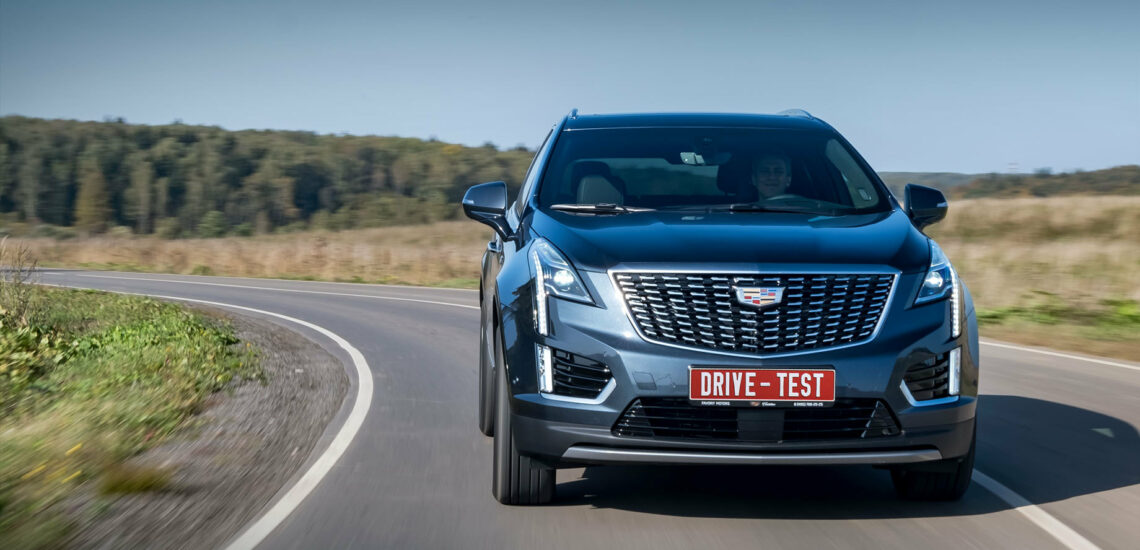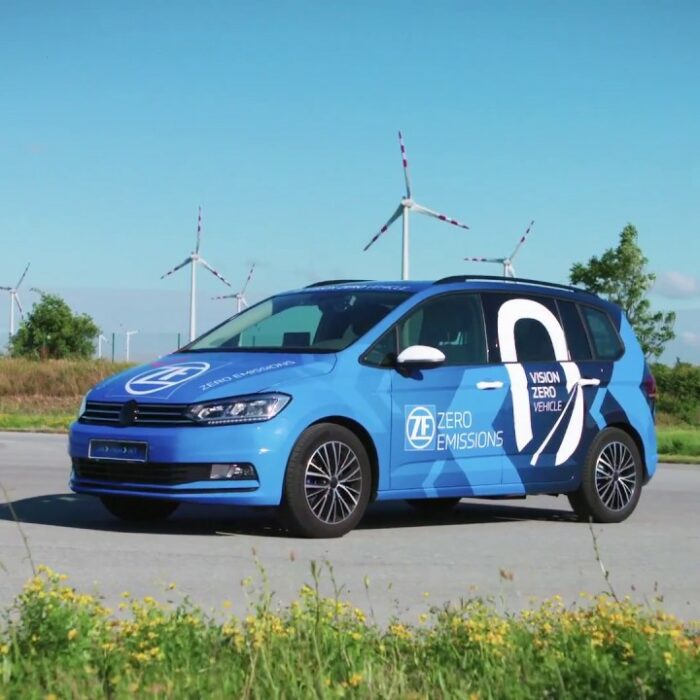With the rejection of the powerful aspirated V6 3.6 in favor of a 200-horsepower two-liter turbo engine, the Cadillac XT5 changed its role. From a niche car with a high tax, it has become one of the most profitable options in the class, taking into account the equipment. Leather interior is included in the base version, and for a nominal fee you get a panoramic roof, all-round cameras, three-zone climate control, seat ventilation and a head-up display. There is also a catch, although it is not essential for the average consumer — the car is extremely spineless.
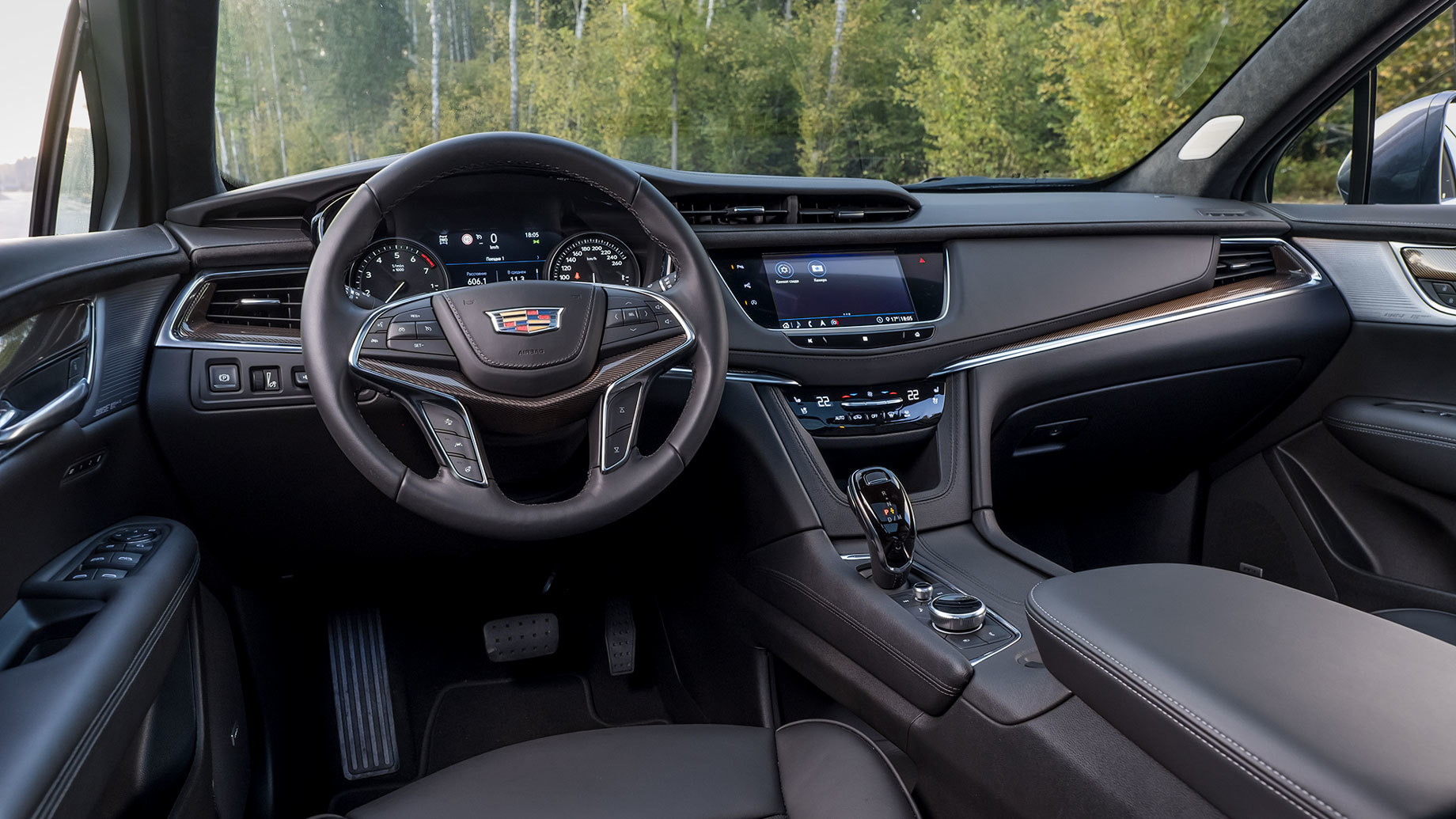
According to the owners, the XT5 is unusually comfortable. We can’t say the same about our Sport car with adaptive dampers and 20-inch wheels. Cadillac does not leave unnoticed the micro-profile of the road, sometimes causing even a slight resonance of the pedal assembly. The body trembles when driving through all types of small and medium bumps. But the speed bumps are fairly felt even after 31 miles/h. Part of the blame for the increased vibration load and noticeable level of internal noise in the cabin lies with the Continental CrossContact UHP 235/55 R20 tires. Don’t chase the size!
It is truly said that Cadillac is a lively one. It is good at accelerating on the move. The turbo engine willingly drives from 2000 rpm. The test version is capable of the same 350 N•m as the 240-strong American, and in the same range. (Hence, by the way, the indistinct index 350T on the trunk lid.) Subjectively, the heavy car seems to be more powerful than the 200 forces declared in the VTA, as if detuned only on paper. It starts smoothly, but the promised by the manufacturer of ten seconds to a hundred almost meets the requirements. And the disabled traction control easily allows you to even slightly improve the passport time. The Car and Driver publication recorded a set of 60 miles per hour in 7.6 seconds.
With the convenience of traction control, everything is not so rosy. The nine-speed automatic gearbox is set in an economical way. It does not encourage engine braking: if you release the accelerator a little, it either pokes one of the higher gears, or completely turns off the transmission. Of course, the subsequent supply of fuel is perceived with a hitch, and the inclusion of a gear is accompanied by a slight jerk. When driving at a constant speed, the tachometer needle nervously floats around 1250-1500 rpm, illustrating the fuss of the automatic gearbox.
After the kickdown click, a long pause follows for successive reset of three or four stages with fleeting stops on each. In traffic jams, the box behaves a little calmer than some DSG preselective, being too carried away by the clutch play. Sport mode changes the setting of both the powertrain and dampers. It does not so much improve the connection on the accelerator as it firms the return from seams and hatches. Hell with it! And with the start/stop system, it sometimes takes a good second to restart.
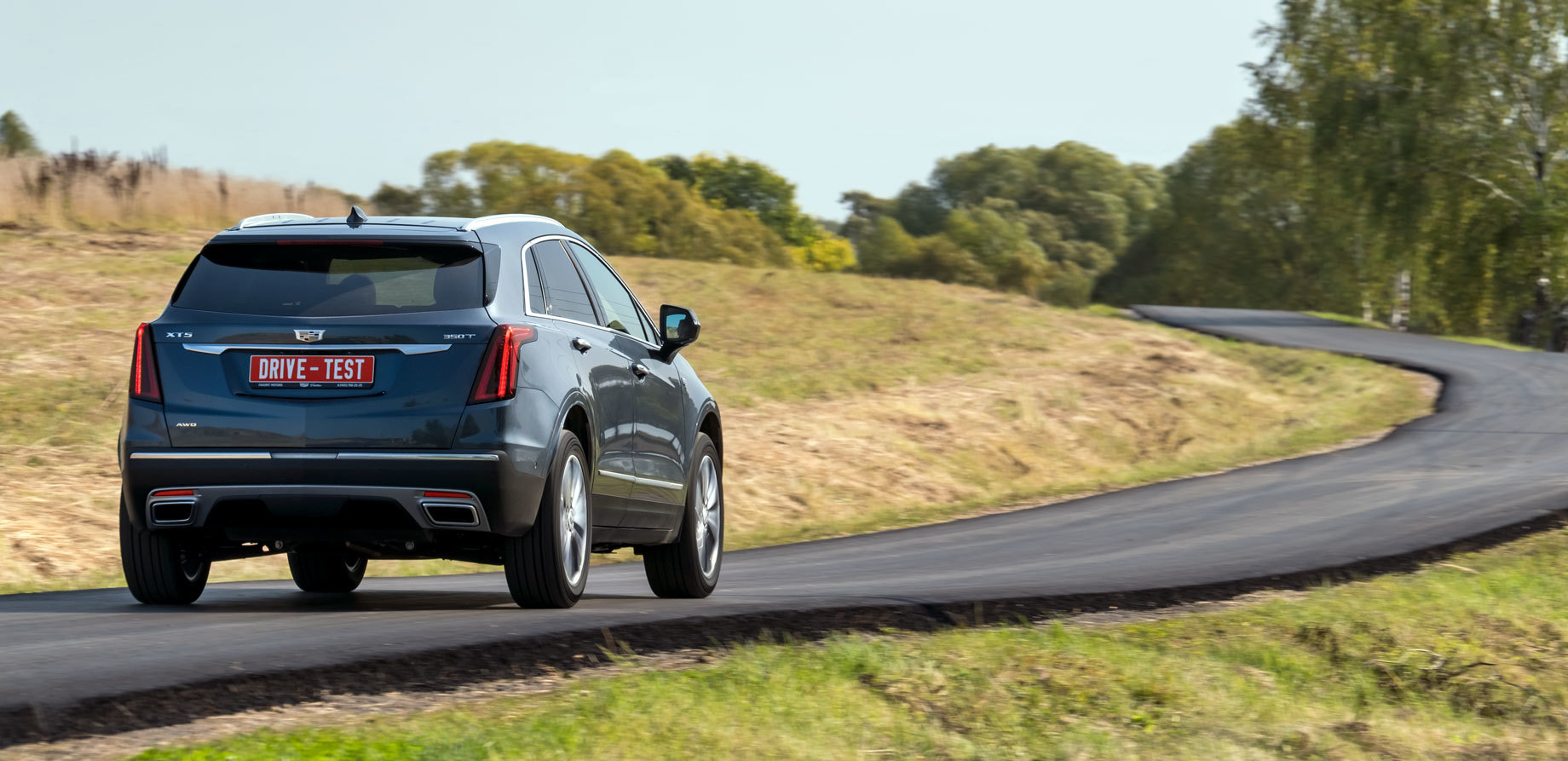
Cadillac keeps a straight line well, and the feeling of speed distorts in a safe direction: it always seems that you are going faster than you really are. This is partly due to the lack of feedback on the steering wheel and the resulting uncertainty in the car. Despite the background synthetic loading, the steering wheel is empty in the near-zero zone: control at small angles of rotation is carried out by eye.
The steering wheel makes less than three turns between the extreme positions, but it seems it makes more. Sensitivity to small deviations is reduced. Within 20° trajectory deviations are minimal, and reactions are soft and unhurried. When avoiding a sudden obstacle Cadillac requires rotation at large angles. The stabilizing effort becomes distinct, but does not add information content. The higher the speed, the stronger the estrangement between the car and the driver. For many, it’s even easier: it goes by itself and that’s okay.
The chassis is configured normally. Standing in a bow, the XT5 rolls moderately, isn’t stubborn and does not give kinematic surprises. The need for searching taxiing, which I constantly drive in fast turns, is caused by the paucity of the interrelation, not by the oversteer as such. Questions to the balance do not arise as long as the supply of tire grip doesn’t dry out. The front ones slip first, and the viscous drift manages to frighten before the non-switchable stabilization system catches on. However, much earlier you should fall out of a flat seat, leaving the idea of active pilotage.
In most situations, the XT5 handles with front-wheel drive. However, if one of the AWD modes is forcibly fixed (you can hear how the dog clutch clicks in the transfer case), you can feel a pleasant turn on the bow from the selective connection of the rear clutches. But for this you need to take control of the automatic gearbox. Without prompting the driver, it can act retarted the entire turn, picking up the gear, and not give enough torque to the wheels. As a rule, a typical city turn under the arrow is overcome by coasting, while the gearbox sticks out in the semantic hole between releasing the gas and turning on the lower gear. Capacity returns to the Cadillac when the wheels are already pointing straight ahead.
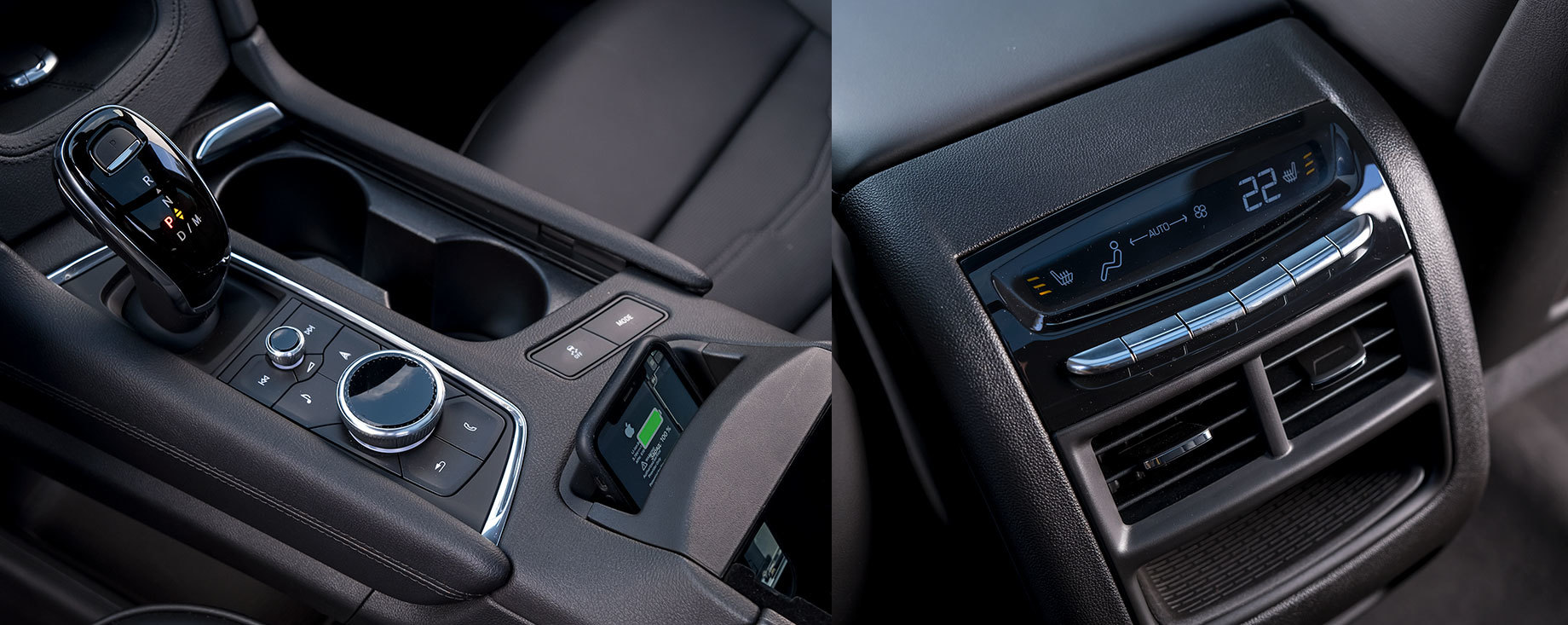
An important innovation of the 2020 model year is associated with the unification of the XT5 and more recent crossovers of the brand. Here, too, a brake system with an electro-hydraulic booster from Delphi is now used instead of the usual vacuum system. Forget the wadding under the left pedal. The drive gear is short-stroke in a sporty way, and you control deceleration by changing the applied force. The hard pedal is not directly connected to the hydraulics, the synthesized reactive action is always proper and homogeneous.
When stopping from low speeds, this greatly improves the accuracy of commands and simplifies operation. Although at high speed it does not save from the feeling of a large mass. The beginning of the lock is difficult to catch, but why is it for an ordinary driver? But, automotive engineers and marketing experts repeat, in the absence of vibrations on the pedal, it is psychologically easier for it to slow down to the floor.
Well, I do not know. Even though the pedal doesn’t tremble, the body is convulsing under the influence of vibrations of large unsprung masses. As if its resonant characteristics are poorly coordinated with the frequency of the ABS. And the longitudinal peck is significant. It seems that any counter-emergency maneuver of Cadillac is traumatic for the psyche, whether it is an emergency stop or a rearrangement, which the ESP opposes with all its might…
I have not read anywhere that Cadillac is afraid of cramped spaces. Meanwhile, at the entrance, for example, into a narrow garage box, you have to turn off the parking sensors. Otherwise, the collision avoidance system is constantly activated. Finding a close wall with sonar, the XT5 slams on the brakes and stops dead in its tracks. Getting a headrest on the back of your head is just so unpleasant. You also look like a dummy from the outside: you can’t get into the place, you can’t stop smoothly without panic. In addition, the parking sensors signals are duplicated by a belated vibration in the seat, which is even more distracting.
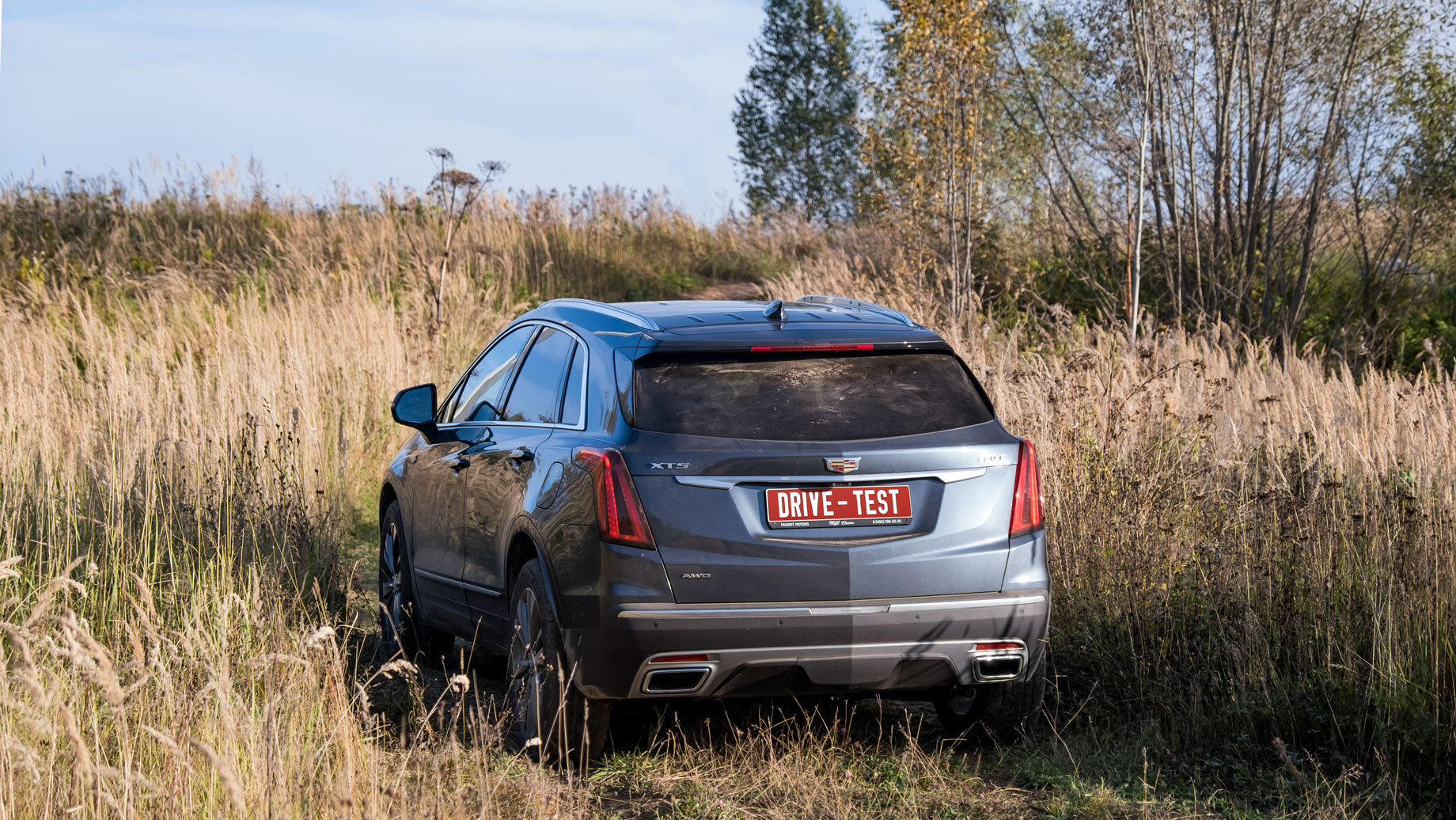
Cadillac does not shine with cross-country ability — not the same geometry, but it nobly overcomes gross flaws of earth road. The worse the road, the more shortcomings you will forgive the “American” for the energy-intensive suspension. In general, the XT5, rustic by nature, fits into the country environment so well that I would sell it in nature. Piece trade in sedans, probably, can be somehow carried out in the metropolis, and sports managers from Tennessee will look more organically among the rich greenhouses. And also — to single out the rural premium in a separate segment.
This is a translation. You can read the original here: https://www.drive.ru/test-drive/cadillac/5f6cc615ec05c44a4000001b.html

Published August 25, 2022 • 6m to read

